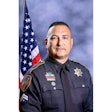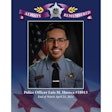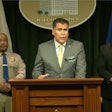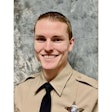"I must follow the people. Am I not their leader?" - Benjamin Disraeli
Making the transition from a platoon commander in the Marine Corps to a new police officer with the Los Angeles Police Department was one of the most challenging leadership experiences I have been through. Having led 30 to 40 Marines for three years, often under trying conditions, I considered myself to be a tested leader of men. Even in the Police Academy, I had been the class leader and an honor graduate, so I thought I was pretty hot stuff when I stepped out into the mythical "streets" as a patrol officer. But now I was the one taking orders, receiving the undesirable assignments, and being frustrated while seeing my supervisors make mistakes that I knew I would never make.
Then a universal truth struck me. If I wanted to be a good leader, then I had to learn to be a good follower and just become the best police officer I could be. I did my best to report to work on time, to wear my uniform properly, to follow the rules and to not cause problems with my coworkers. I did my job. After all, that is what I had demanded from my Marines.
I am not sure when it happened because it was a gradual progression, but this time in my life was a period when I began to understand more about leadership than I ever had before. I especially learned about leadership as it applies to the police profession. By watching and listening, I realized that cops and Marines do not respond to the same leadership techniques. My second realization was that we are all leaders and followers at the same time, and neither title is mutually exclusive.
Consider the following: On an average duty day, Officer John Smith goes into work and, after suiting up, goes to roll call for information, direction, possibly inspection, and hopefully some inspiration from the sergeants and the lieutenant. The sergeants and lieutenants are leading and Smith is following. Smith then goes on patrol and answers a radio call of an armed suspect barricaded in a house. Upon Smith's arrival, citizens look to him for direction. Other officers arrive, and Smith deploys them tactically and develops a plan to control the scene and take the suspect into custody. Smith then relays new information to the responding units. He is doing a great job, so the sergeant on scene lets Smith retain control of the incident. In this way, the roles of leader and follower flow back and forth and sometimes overlap.
Some of the best police officers I know have no aspirations to promote to leadership positions, yet they lead by example within their departments, and they are amazing leaders in other areas of their lives. They lead their families, they are church and community leaders, they are elected officials in some capacity, or they have reserve military careers. I find these individuals to be among the finest police officers, because they understand the principles of leadership and also "followership." They understand that both require loyalty, dependability, and unselfishness. In whatever position they find themselves, follower or leader, they make the lives of the people around them better.
For some reason, the word "follower" has a bad connotation to most people. No one wants to be a follower. A recent article by Del Jones in the "Honolulu Gazette" reported that a search for book titles on Amazon.com netted 57,000 hits for books on leadership, but only 494 books about how to follow. We have all heard someone say, "Be a leader." But how often do we hear someone say, "Be a follower."
Followers get no respect, but they are critical to the success of any mission. After all, if everyone tried to be a leader at the same time, then nothing would ever be accomplished.
The thesaurus says that disciple, upholder, and supporter are synonyms for follower. If you don't like the word follower, pick a term that suits you. I personally like supporter, because when I am in a leadership role, support is what I need from my subordinates to accomplish any mission. And I try to remember that I am supporting my lieutenant, my captain, and my chief, and that even they answer to somebody.
Be a good leader when it is your time. But be a good follower, too.
















